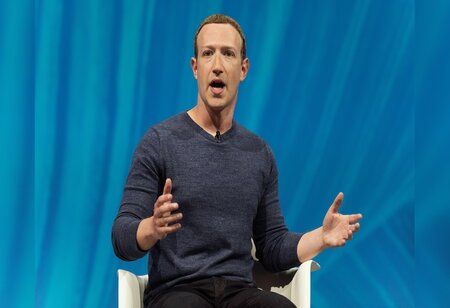By Global Consultants Review Team
 Meta CEO Mark Zuckerberg appears to have been dealing with Facebook's declining cultural impact for some time. Internal emails from April 2022 between him and Facebook's Tom Alison, which surfaced during an ongoing antitrust case, demonstrate the company's growing concern about the platform's relevance in an evolving digital landscape.
Meta CEO Mark Zuckerberg appears to have been dealing with Facebook's declining cultural impact for some time. Internal emails from April 2022 between him and Facebook's Tom Alison, which surfaced during an ongoing antitrust case, demonstrate the company's growing concern about the platform's relevance in an evolving digital landscape.
These communications were presented to a US court this week as part of the Federal Trade Commission's antitrust case against Meta. According to reports, the emails focused on Zuckerberg's concern that, while Facebook continues to see consistent user engagement, it no longer carries the same cultural weight as it once did.
In one of the emails, Zuckerberg stated that, despite stable usage in many regions, he was concerned that Facebook's declining cultural presence would eventually harm the platform's overall health. He suggested that Facebook's model of connecting people through "friending" had become obsolete, noting that many users' friend networks now feel stale and disconnected from their true interests.
"First, a lot of people's friend graphs are stale and not filled with the people they want to hear from or connect with," Zuckerberg had said.
Interestingly, Zuckerberg even admitted that his personal habits had shifted, stating that he was more likely to follow creators and influencers on platforms such as Instagram or Twitter than to engage with people via Facebook.
To address the issue, Zuckerberg proposed three possible solutions to Alison. One of them included what he described as a "crazy idea": completely resetting users' friend lists and encouraging them to rebuild connections from scratch, potentially breathing new life into how the platform operates.
He also discussed the limitations of Facebook's focus on communities, particularly through Groups. Despite years of investment in this space, Zuckerberg appeared unsure how far they could take that approach, despite seeing some promise in group messaging.
What makes this timing noteworthy is that these emails were exchanged just a few months after Facebook launched Reels, a short-form video feature designed to compete with TikTok. Although Reels was viewed as a significant move to attract younger audiences, the emails indicate that Meta's top executives remained skeptical that it would be sufficient to reverse Facebook's dwindling cultural momentum.
We use cookies to ensure you get the best experience on our website. Read more...